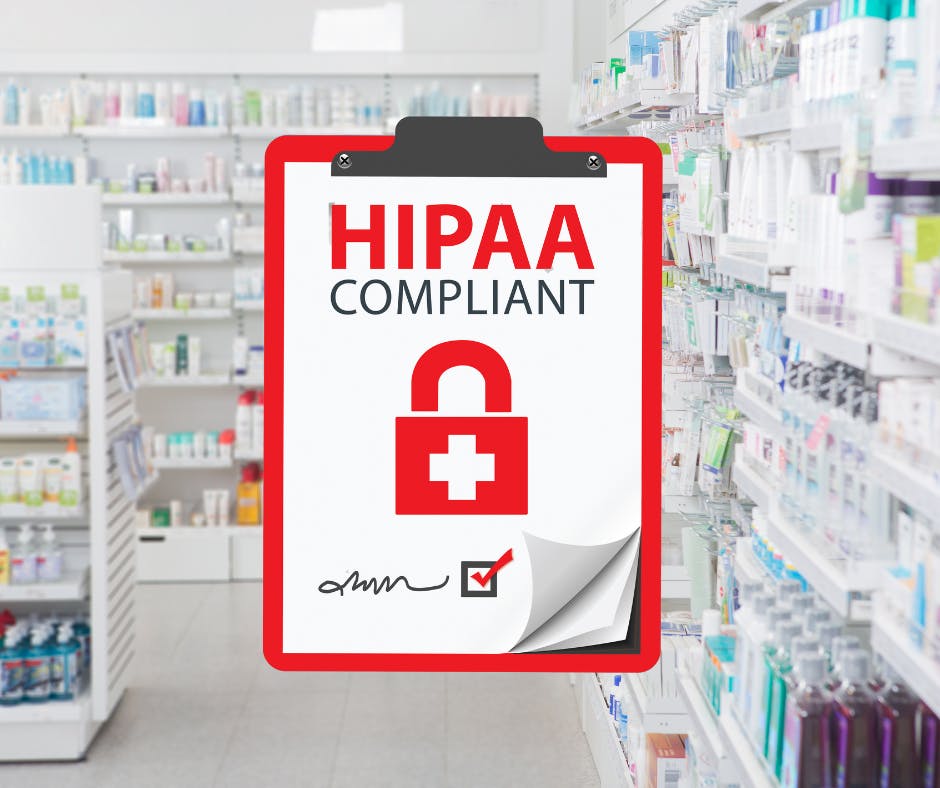The digital age has ushered in an era of increasingly larger file sizes, due in part to the advent of advanced data collection, higher resolution images, and complex simulations. Nowhere is this truer than in the pharmaceutical industry, a field that handles a myriad of data-intensive files ranging from patient information to clinical trial results. As files balloon in size, the task of file storage and transfer becomes more complex. Furthermore, the sensitive nature of this data necessitates robust protection mechanisms. Secure file transfer and storage are no longer just administrative functions; they are vital components of data integrity and confidentiality. That is why you need to count on the right solution to help you keep your files safe.
With the pharmaceutical industry continually evolving, there’s a growing reliance on digitized data. Secure file storage and transfer are becoming essential to efficiently manage and transmit large files, such as genomic data, high-resolution medical images, and personalized drug information. These practices not only promote operational efficiency but also uphold data integrity and confidentiality, which are integral to regulatory compliance and maintaining trust among patients and stakeholders. Secure file transfer is, therefore, more than just a logistical concern; it’s a cornerstone of pharmaceutical operations in the digital age, particularly when it comes with key features, such as single sign on (SSO).
The Importance of Patient Privacy and Protection
Pharmacists, regularly access and manage confidential patient information. This information, known as Personal Health Information (PHI), is integral to various aspects of pharmaceutical operations, from devising personalized treatment plans to monitoring drug interactions and ensuring optimal medication management. They often need to access this information and discuss it with other medical professionals, including doctors. Despite the necessity of accessing and using this data, its sensitive nature mandates careful handling to maintain patient trust and comply with stringent data protection laws.
Patient privacy and protection is not just a legal mandate for pharmacies but also an ethical obligation. Pharmacies are custodians of a wealth of sensitive patient data, and any breach in security could have serious implications. These could range from the loss of patient trust and reputational damage, to severe legal consequences. The stakes are high, which is why pharmacies need to employ secure file transfer and storage mechanisms. Such mechanisms not just protect sensitive data but also act as a backbone for trust, ensuring patients that their data is in safe hands.
GDPR Compliance in the Pharmaceutical Space
The General Data Protection Regulation (GDPR) is a comprehensive data protection and privacy law that safeguards the privacy rights of European Union citizens. Given the global nature of healthcare, it’s a crucial regulation for any organization dealing with EU citizens’ data, including pharmacies. Hence, GDPR compliance plays a crucial role in the pharmaceutical industry.
At its core, GDPR grants individuals greater control over their personal data. For pharmacies, this means employing transparent and ethical practices while dealing with patient data. Beyond these ethical considerations, GDPR also sets forth stringent requirements for the secure processing of data, including file transfer and storage, to which pharmacies must adhere to.
To ensure GDPR compliance, pharmacies need to implement robust data protection measures. This includes employing mechanisms like end-to-end encryption and granular user roles and permissions to ensure secure file transfer. Pharmacies also need to establish a process that enables patients to access, correct, and delete their data upon request, thereby offering individuals greater control over their personal data.
Non-compliance with GDPR can lead to severe penalties, including hefty fines. Beyond the financial implications, such violations can erode trust among patients and other stakeholders, impacting a pharmacy’s reputation and day-to-day operations. This makes GDPR compliance a vital part of secure file management in the pharmaceutical industry.
HIPAA Compliance in the Pharmaceutical Industry
The Health Insurance Portability and Accountability Act (HIPAA) is a critical legislation in the United States that protects patient health information. In the realm of pharmacies, where PHI is routinely handled, ensuring HIPAA compliance is a crucial obligation.
HIPAA plays a vital role in safeguarding patients by regulating how their PHI is used and disclosed. It offers a robust framework that ensures that only authorized individuals have access to this sensitive information, thereby upholding the principle of patient confidentiality.
To ensure HIPAA compliance, pharmacies need to incorporate certain protective measures. These include secure file storage, controlled data transfer, and robust access controls. Using password management tools and two-factor authentication are key components of these protective measures, complemented by maintaining HIPAA-compliant activity logs to track data access and modifications.
Violations of HIPAA regulations can lead to severe consequences. They could lead to hefty fines and potential criminal charges. Therefore, maintaining stringent data security measures and ensuring consistent HIPAA compliance is not just a legal requirement but a crucial part of maintaining trust and credibility.
The Biggest Digital and Cyber Threats in the Pharmaceutical Space
In the context of ever-increasing cyber threats, it’s essential for pharmacies to recognize the potential risks and take preventative measures. Notable threats include ransomware, phishing attacks, DDoS attacks, Trojan horse attacks, and SQL injection attacks.
1. Ransomware
Ransomware is a form of malicious software that essentially locks users out of their systems or data until a ransom is paid. For pharmacies, a ransomware attack can cripple their ability to access vital patient information or operational data, leading to substantial financial losses, severe disruption in operations, and compromise of sensitive patient data. In an era where data access is crucial for delivering patient care, a ransomware attack can have far-reaching implications.
2. Phishing Attacks
Phishing attacks are deceptive tactics used by cybercriminals to trick individuals into revealing sensitive information, such as usernames, passwords, and credit card details. For pharmacies, a successful phishing attack can lead to unauthorized access to patient data, financial loss, and significant reputational damage. Vigilance and robust cybersecurity measures are crucial in preventing such attacks.
3. DDoS Attacks
Distributed Denial of Service (DDoS) attacks aim to overwhelm a system with traffic, rendering it inaccessible to its intended users. For pharmacies, a successful DDoS attack could disrupt services, affecting patient care and damaging patient trust. As a result, implementing robust security measures to protect against these attacks is essential.
4. Trojan Horse Attacks
Trojan horse attacks are a type of malware that disguises itself as a legitimate software or file. For pharmacies, a Trojan horse can lead to unauthorized access to sensitive data, disruption of systems, and potential data loss. Implementing security measures such as file and user activity notifications can help detect and prevent such attacks.
5. SQL Injection Attacks
SQL injection attacks involve the insertion of malicious SQL code into a database query. For pharmacies, this could lead to unauthorized access to patient data, data corruption, or even data loss. By using secure file transfer and storage solutions that protect against such attacks, pharmacies can safeguard their crucial data.
How To Choose the Right File-Sharing Solution for Pharmacies
When selecting a file-sharing solution, pharmacies need to consider key factors such as password hygiene, two-factor authentication, user roles and permissions, activity reporting, end-to-end encryption, and unlimited file sizes and storage.
Password Hygiene
Good password hygiene is a fundamental aspect of data security. Creating strong, unique passwords and regularly updating them can significantly reduce the risk of unauthorized access. Password management tools can assist in maintaining password hygiene, providing functionalities like password generation, storage, and automatic form-filling.
2-Factor Authentication
Two-factor authentication (2FA) adds an extra layer of security to the login process. It requires users to provide two types of identification before they can access their accounts, which reduces the risk of unauthorized access even if a password is compromised.
Granular User Roles and Permissions
Granular user roles and permissions enable an organization to control who can access specific data and what actions they can perform. This not only minimizes the risk of unauthorized data access but also helps maintain an audit trail for compliance purposes. It provides you with the ability to dictate exactly who has access to specific files. That way, if someone’s login credentials are compromised, the hacker does not have access to everything on the server.
Activity Reporting and Notifications
Activity reporting and notifications provide visibility into who is accessing and modifying files. This allows pharmacies to quickly identify and respond to potential security threats, making it a vital feature of any secure file-sharing solution. You can take a close look at who is accessing what files.
End-to-End Encryption
End-to-end encryption ensures that data remains secure during transfer by encrypting it from the source to the destination. This means that even if the data is intercepted during transmission, it cannot be read by unauthorized individuals.
Unlimited File Sizes and Storage
Unlimited file sizes and storage are essential for handling increasingly large files in the pharmaceutical industry. A solution that supports unlimited file sizes and storage ensures that pharmacies can securely store and share large files without worrying about capacity limits.
Why Rely on SmartFile To Help You Manage Your Files?
When it comes to secure file transfer and storage in the pharmaceutical industry, SmartFile stands out as a leading choice. Its powerful features and industry-specific solutions cater to the unique needs and challenges of the industry. A few key benefits include:
- End to End Encryption: SmartFile provides robust end-to-end encryption, ensuring that your data remains secure during transfer. This means that your files are encrypted from the moment they leave your device until they reach the intended recipient.
- HIPAA Compliance: SmartFile supports HIPAA compliance, which is crucial for protecting sensitive patient information. By using SmartFile, pharmacies can meet compliance requirements and avoid potential penalties, thanks to HIPAA compliant activity logs.
- Granular User Roles and Permissions: SmartFile’s granular user roles and permissions allow for precise control over who can access specific data. It also aids in maintaining an audit trail for compliance purposes.
- Advanced Password Management: SmartFile offers sophisticated password management tools that help maintain strong password hygiene. These tools can generate, store, and autofill complex passwords, which are vital for securing accounts against unauthorized access.
- Unlimited File Sizes: In an industry where files are becoming increasingly large, SmartFile’s support for unlimited file sizes comes in handy. There’s no need to worry about running out of storage space or dealing with file transfer limitations. SmartFile’s solutions make it easy to handle large files securely, and you even get file versioning.
- Two-Factor Authentication: SmartFile uses two-factor authentication (2FA) to add an extra layer of security to the login process. This is critical for ensuring that your users have access to the files they need without leaving you vulnerable to a digital attack.
SmartFile delivers a comprehensive, robust, and industry-specific file-sharing and storage solution. Its features have been designed to cater to the unique needs of the pharmaceutical industry, ensuring secure file transfer, data privacy, and regulatory compliance. Choose SmartFile to keep your files secure, your patients’ data safe, and your operations compliant.
Count on SmartFile To Help You Protect Your Files in the Pharmaceutical Industry
Secure file transfer and storage are critical in the pharmaceutical industry due to the nature of the data, compliance requirements, and the threat of cyberattacks. By choosing the right solution, pharmacies can protect sensitive patient information, comply with regulations like GDPR and HIPAA, and mitigate cyber threats.
SmartFile is an ideal choice for the pharmaceutical industry, offering a robust file-sharing and storage solution tailored to meet industry-specific needs. With features such as end-to-end encryption, granular user roles and permissions, two-factor authentication, and unlimited file sizes, SmartFile ensures secure and efficient file transfer.
Moreover, SmartFile’s advanced security features like file and user activity notifications, HIPAA-compliant activity logs, and password management tools provide pharmacies with the means to prevent and monitor potential security threats. By implementing SmartFile, pharmacies can ensure secure file sharing and compliance with regulations, thus protecting their reputation and the trust of their patients.
Don’t risk your patient’s data, protect it with the best. Contact us today to learn more about the innovative features we have available, and let us help you protect your confidential information as well as that of your patients.


